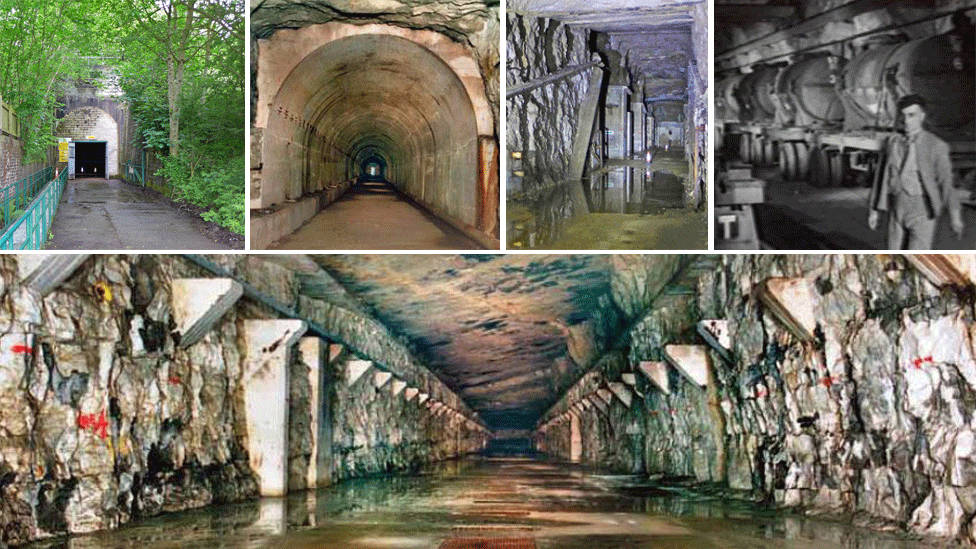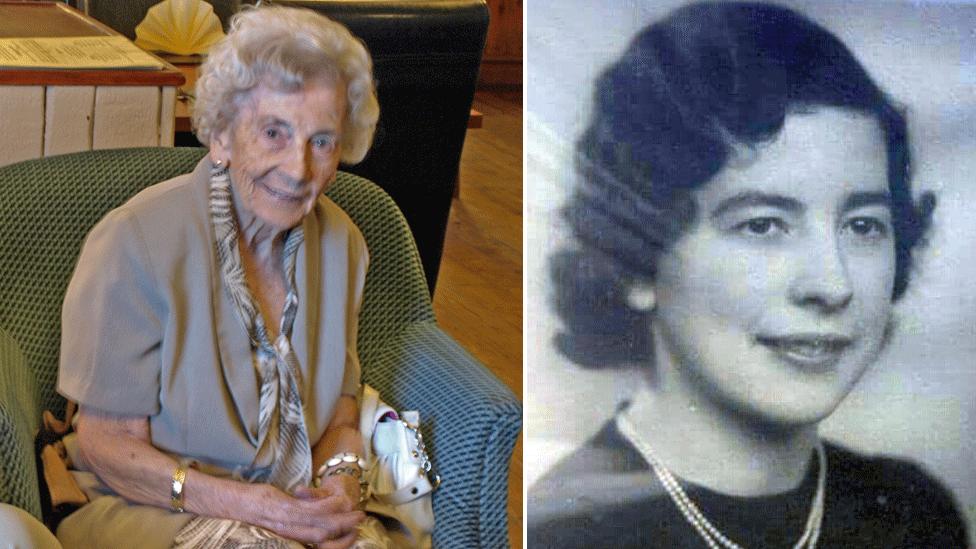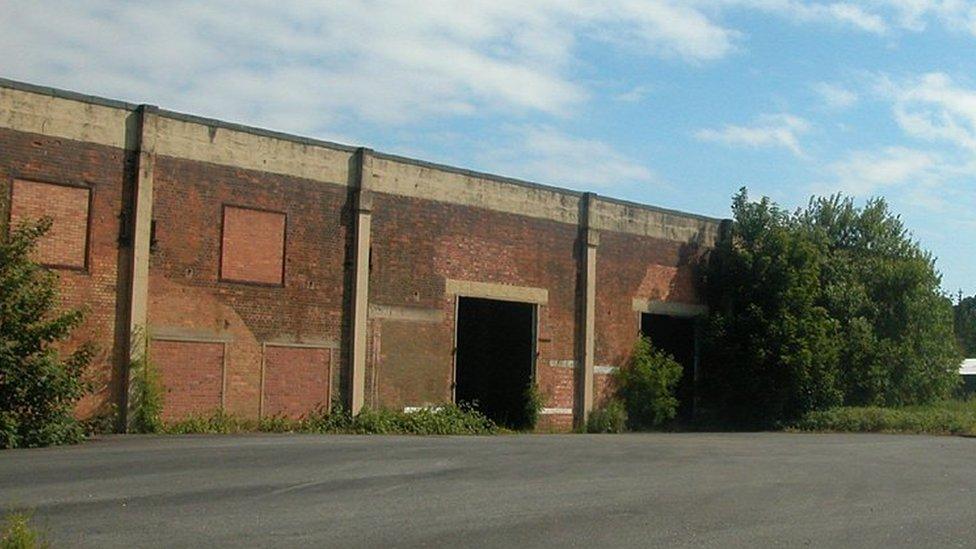Rhydymwyn World War Two tunnels open to public
- Published

Pictures of the tunnels with an old image showing the mustard gas storage tanks
Tunnels at a former top secret World War Two chemical weapons site in Flintshire are being formally opened to the public.
Rhydymwyn Valley History Society has been working for years to get safe access to the tunnels near Mold that stored mustard gas in the 1940s.
The UK Government, as the site owner, carried out work to allow the tunnels to open over the weekend.
Rhydymwyn Valley Works was used for the early development into the atomic bomb.
UK government film from the 1940s about Rhydymwyn Valley Works with comments from wartime Prime Minister Winston Churchill
Society chairman Colin Barber said the tunnels had been a "mystery" to local people for many years.
But on Saturday a public tour is taking place along a newly laid pathway with visitors asked to wear hard hats and high-visibility jackets.
The guided tour - one of five due to be held this year - will follow a formal opening ceremony by Ken Skates, the Cabinet Secretary for Economy and Infrastructure.
"It has been a long time coming," said Mr Barber.
"There are people who have lived here all of their lives who have never been inside."

Caroline Bellis, aged 100, worked at the munitions site during the war
During the height of the war, the tunnels, near Mold, housed 48 storage tanks, each containing up to 65 tonnes of mustard gas.
In the intervening years they remained closed, leading to rumours about what might have been left behind.
That was until an independent expert was given access and confirmed they were empty in 2006.
Since then the heritage group, which helps to manage the site and its archives, has been trying to create access to the tunnels following safety assessments.
Munitions workers like Caroline Bellis, aged 100, worked at the site in a myriad of buildings that still pepper the complex.
In an interview in 2008, external, Ms Bellis, who is due to visit the site again for the opening ceremony, explained how she helped carry shells into the tunnels for storage.
Other work at the site included evaluating early atomic bomb research, codenamed Operation Tube Alloys, external.
Many of the scientists involved worked on the Manhattan Project, which developed the first atomic bomb.

One of the 40-plus outbuildings standing empty at the former munitions site